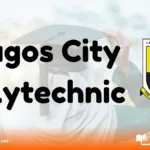The Petroleum Training Institute (PTI), located in Effurun, Delta State, Nigeria, was established in 1973 by the Federal Government of Nigeria to train skilled technicians and technologists needed for the oil and gas sector. This was done as part of Nigeria’s commitment to the Organization of Petroleum Exporting Countries (OPEC) to boost the country’s technical capacity in the energy sector. The institute plays a crucial role in the supply of skilled manpower to Nigeria and West Africa’s oil and gas industries.
PTI offers various programs leading to National Diploma (ND), Higher National Diploma (HND), and certifications in General Welding. Over the decades, the institute has trained over 50,000 professionals who have gone on to contribute significantly to the oil and gas industry.
Vision and Mission of PTI
Vision:
To be the leading oil and gas training institution, providing top-tier technical manpower in Nigeria and West Africa for the oil, gas, and allied industries.
Mission:
To develop world-class professionals with exceptional skills and competencies through effective training, research, and capacity building for the oil and gas industry.
History and Leadership of PTI
Founding:
The Petroleum Training Institute was founded in 1973 under the PTI Act No. 37 of 1972 to develop the technical workforce necessary to operate and manage Nigeria’s growing petroleum industry.
Current Leadership:
The current Principal and CEO, Dr. Henry Adimula, was appointed in 2021. Prior to his appointment, he served as Vice Principal. He succeeded Prof. Sunny E. Iyuke, who held the position until his term ended in 2020.
Success and Contributions
Since its inception, PTI has provided cutting-edge technical education, developing professionals and technicians who are now key players in oil, gas, and related industries. PTI’s state-of-the-art facilities and highly experienced faculty ensure that students receive industry-relevant training. The institute continues to evolve, responding to the changing needs of the oil and gas sector, both locally and internationally.
Academic Programs at PTI
PTI offers National Diploma (ND) and Higher National Diploma (HND) programs, along with short courses and certifications such as General Welding Certification. The programs are designed to produce competent technicians, technologists, and other skilled personnel. The table below outlines the various courses offered at PTI across its departments.
National Diploma (ND) Programs
| Course | Duration | Qualification |
|---|---|---|
| Electrical & Electronic Engineering Technology | 2 years | National Diploma (ND) |
| Petroleum Engineering Technology | 2 years | National Diploma (ND) |
| Petroleum and Natural Gas Processing Technology | 2 years | National Diploma (ND) |
| Mechanical Engineering Technology | 2 years | National Diploma (ND) |
| Welding Engineering & Offshore Technology | 2 years | National Diploma (ND) |
| Computer Science & Information Technology | 2 years | National Diploma (ND) |
| Petroleum Marketing & Business Studies | 2 years | National Diploma (ND) |
| Industrial Safety & Environmental Technology | 2 years | National Diploma (ND) |
| Science Laboratory Technology | 2 years | National Diploma (ND) |
| Computer Engineering Technology | 2 years | National Diploma (ND) |
| Mechatronics Engineering Technology | 2 years | National Diploma (ND) |
| Environmental Science & Management Technology | 2 years | National Diploma (ND) |
Admission Requirements for ND Programs:
To be eligible for admission into any ND program, candidates must have:
- A minimum of five (5) O’Level credit passes in subjects such as Mathematics, Physics, Chemistry, and English Language, plus one other relevant subject (e.g., Biology, Geography, Agricultural Science, Technical Drawing).
- Alternatively, holders of National Technical Certificates or NABTEB with credits in relevant subjects are also eligible.
Higher National Diploma (HND) Programs
| Course | Duration | Qualification |
|---|---|---|
| Electrical & Electronic Engineering Technology | 2 years | Higher National Diploma (HND) |
| Petroleum Engineering Technology | 2 years | Higher National Diploma (HND) |
| Petroleum and Natural Gas Processing Technology | 2 years | Higher National Diploma (HND) |
| Mechanical Engineering Technology | 2 years | Higher National Diploma (HND) |
| Welding Engineering & Offshore Technology | 2 years | Higher National Diploma (HND) |
| Petroleum Marketing & Business Studies | 2 years | Higher National Diploma (HND) |
| Industrial Safety Technology | 2 years | Higher National Diploma (HND) |
| Environmental Technology | 2 years | Higher National Diploma (HND) |
| Science Laboratory Technology | 2 years | Higher National Diploma (HND) |
| Computer Science | 2 years | Higher National Diploma (HND) |
Admission Requirements for HND Programs:
- Applicants must possess a PTI National Diploma (ND) or its equivalent from a recognized institution with at least a Lower Credit.
- Applicants with a Pass grade in their ND must have at least two years of relevant industrial work experience.
- Five (5) O’Level credit passes, including English and Mathematics, are required.
Specialization Options for HND Programs:
In the HND programs, students can specialize in various fields depending on the department. Here are a few options:
| Specialization | Field |
|---|---|
| Instrumentation and Control | Electrical/Electronics Eng. |
| Power and Machines | Electrical/Electronics Eng. |
| Electronics and Telecommunications | Electrical/Electronics Eng. |
Additional Programs and Certifications
Apart from the regular ND and HND programs, PTI also offers the following:
- General Welding Certification: This is a professional certification program aimed at producing certified welders equipped with the skills necessary for oil and gas industry operations.
- Short Courses: PTI offers various short-term courses and training programs tailored for industry professionals, including programs in safety management, equipment maintenance, and technology upgrades.
Why Choose PTI?
- Industry-Relevant Training: PTI programs are directly aligned with the needs of the oil and gas industry, ensuring graduates are job-ready.
- Experienced Faculty: Learn from industry experts who bring a wealth of knowledge and experience to the classroom.
- Advanced Facilities: The institute boasts state-of-the-art laboratories and equipment to facilitate hands-on learning.
- High Employability Rate: PTI graduates are in high demand in the oil and gas sector due to the institute’s reputation for excellence.
- Professional Certification: In addition to academic qualifications, PTI offers industry-recognized certifications in areas like welding, boosting career prospects.
Conclusion
The Petroleum Training Institute (PTI) remains Nigeria’s premier institution for oil and gas training. Its comprehensive and industry-aligned programs provide students with the technical skills, knowledge, and certifications needed to succeed in the ever-evolving oil and gas sector. PTI’s commitment to excellence, along with its robust training infrastructure and faculty, ensures that graduates are well-equipped to meet the challenges of the energy industry.
Stay updated with the latest student resources and insights from My School Portal! Subscribe to our newsletter for fresh content delivered straight to your inbox—no spam, just value 😊
























